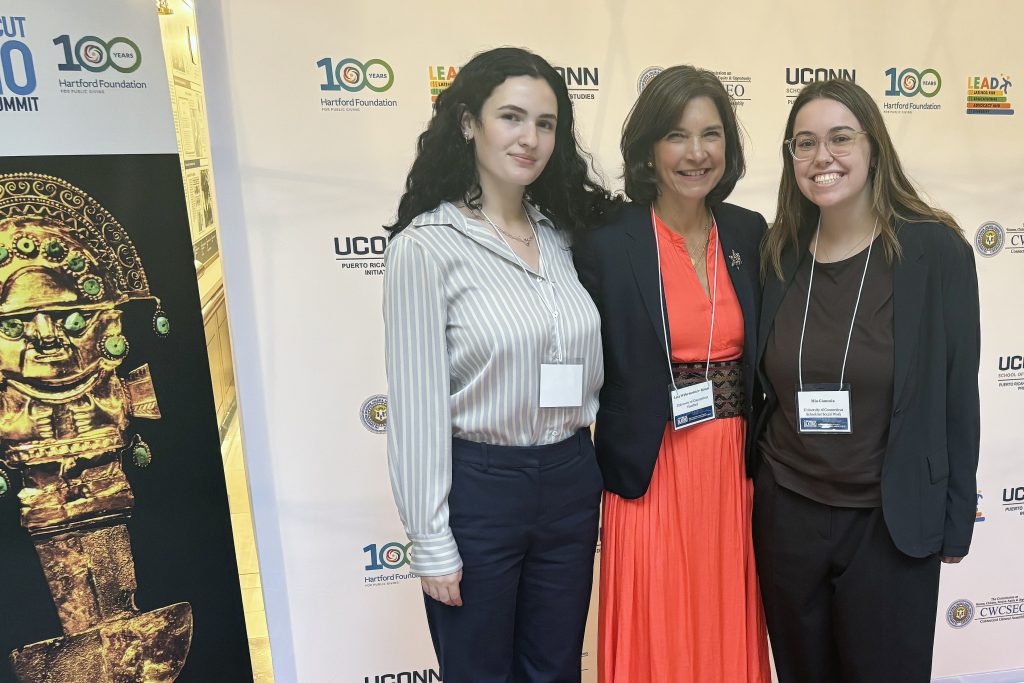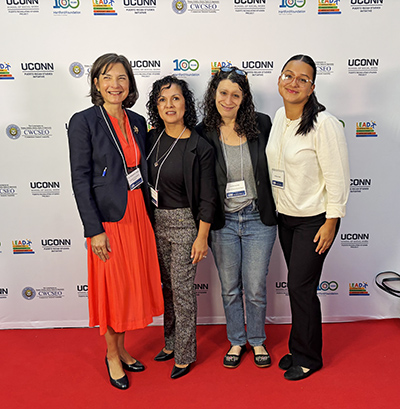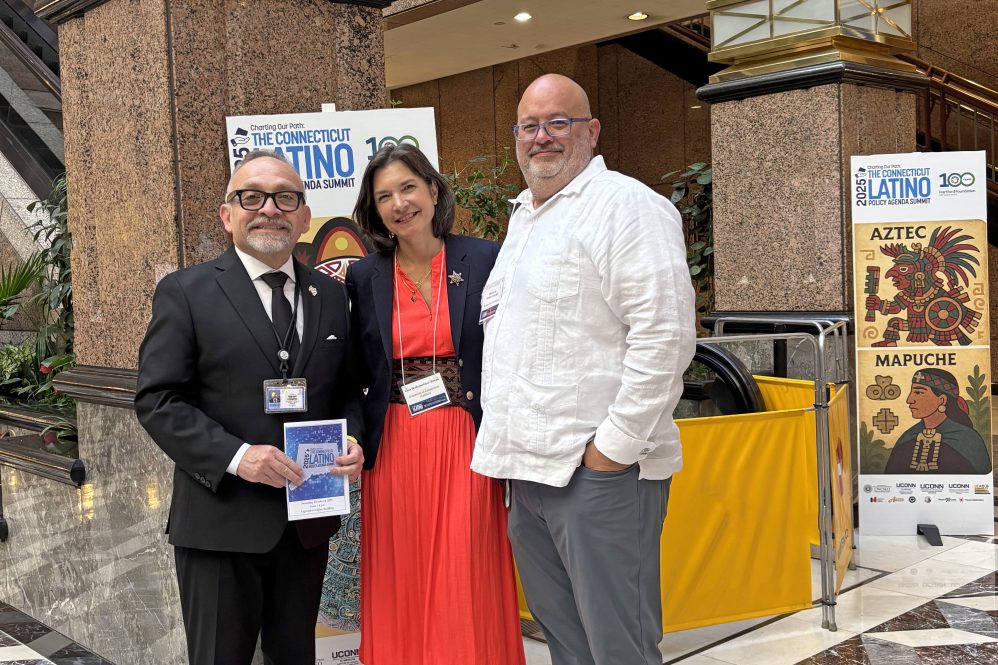On Oct. 4, more than 400 community leaders, legislators, Connecticut residents, and UConn faculty and students gathered at the Legislative Office Building in Hartford to develop a nonpartisan statewide policy agenda for the Latino community.
Now in its second year, the Connecticut Latino Policy Agenda Summit highlights the most important issues affecting Latinos in Connecticut.

Panelists and guests included Connecticut Attorney General William Tong; State Senator Matthew Lesser; State Representatives Juan Candelaria (New Haven), Hilda Santiago (Meriden), Bobby Sanchez (New Britian); Farley Santos (Danbury); immigration attorney Glenn Formica; Sofia Segura-Perez from the Hispanic Health Council; Steve Hernandez, director of ConnCAN; and many others.
Co-organized by the UConn Puerto Rican Studies Initiative, the UConn School for Social Work Puerto Rican/Latine Studies Project, and CWCSEO, the event, titled “Charting Our Path: The Connecticut Latino Policy Agenda Summit” addressed pressing issues in health, education, housing, and environmental justice.
Panel topics focused on Latino access to higher education; Latino health and the future of public health access; Latino media and driving participation; the Latino housing crisis; the local consequences of federal cuts and food insecurity; the fight for environmental justice; Latino civic and community engagement; Latinos and AI; Latino education in uncertain times; and the immigration crisis. Additionally, Magaly Cajigas, Connecticut State Director for the Hispanic Federation, moderated a conversation with Latino legislators and state lawmakers titled “State Legislative Response to Federal Cuts: Protecting Latino Communities.”
“Our goal is to bring together the perspectives of Latinos and other stakeholders in Connecticut to develop a collective agenda that can help shape public policies and legislation that addresses the inequalities experienced by Latinos in Connecticut,” says Lisa Werkmeister Rozas, professor and director of the Puerto Rican and Latine Studies Project at UConn’s School of Social Work. “All topics presented in the panels were relevant and deeply connected to the realities our Latino communities face every day.”
Werkmeister Rozas co-organized the event with Charles Venator-Santiago, associate professor of political science and El Instituto: Institute for Latina/o, Caribbean and Latin American Studies and director of the UConn Puerto Rican Studies Initiative, and Werner Oyanadel, policy director of Latino and Puerto Rican Initiatives at the Connecticut General Assembly’s Commission on Women, Children, Seniors, Equity, and Opportunity (CWCSEO).
“Prior to the summit, we held listening sessions with Latinos in towns across Connecticut to help us develop the event’s panel topics,” Venator-Santiago says. “Every conversation at the summit underscored how critical it is that Latino leaders, policymakers, and community members work together. These discussions are where ideas turn into action—and where the Latino community’s priorities become part of Connecticut’s policy agenda.”

Additionally, Laura Curran, professor and dean of the School of Social Work; Kathy Birnie, director of recruitment and admissions for the School of Social Work; Milagros Marrero-Johnson, senior director of strategic initiatives and community engagement for the School of Social Work; and Lesly Sanchez-Villar, assistant-professor-in-residence in the School of Social Work attended the summit.
The summit also resonated with UConn students. In her rural hometown in Pennsylvania, Mia Giancola ’27 (SSW) shared a friend circle with first, second, and third generation Latino immigrants, and teachers offered all class assignments in both English and Spanish. In high school, she volunteered to help second generation Mexican immigrants with intellectual disabilities succeed academically—a formative experience that led her to pursue social work.
“While I became very aware of the problems that the Latino communities face, I didn’t understand the severe impacts until college,” she says.
Now a research assistant with School of Social Work’s Puerto Rican and Latino Studies Project, Giancola is studying disability policy and law.
“I had an extremely positive experience, and the summit solidified my future career plans in macro social work and obtaining a JD,” Giancola says. “I noticed that many of the breakout sessions had high involvement from the community and often sparked a reaction from the policymakers.”
Giancola attended the summit alongside BSW student Jashleen Abreu Flores ’25; MSW student Viviana Mora ’24 (BA); political science and government major Carina Adams-Szabo ’26; and graduate student Adrian Chavarria, who shared his reflections from the event in this blog post.
Like Giancola, Flores ’25 is interested in politics and community engagement. She attended the Connecticut Latina Campaign School last April and says the summit reinforced her commitment to advocacy.
“The summit was very informative, and I was able to gain a lot of knowledge from the panel sessions, especially one that focused on barriers that stop Latino youth from pursuing higher education,” Flores explains. “I left the session wondering about what can be done so that more Latino youth will consider college.”
Now, faculty, students, and leaders from UConn and CWCSEO will write combine notes taken at each panel and draft a report, highlighting ideas and impacts made at the summit. The report will be shared with elected officials throughout the state with the hope to create an agenda for the upcoming legislative session.
“The summit created space not only for dialogue but for building collective strategies that center Latino voices in shaping Connecticut’s future,” Werkmeister Rozas says.



